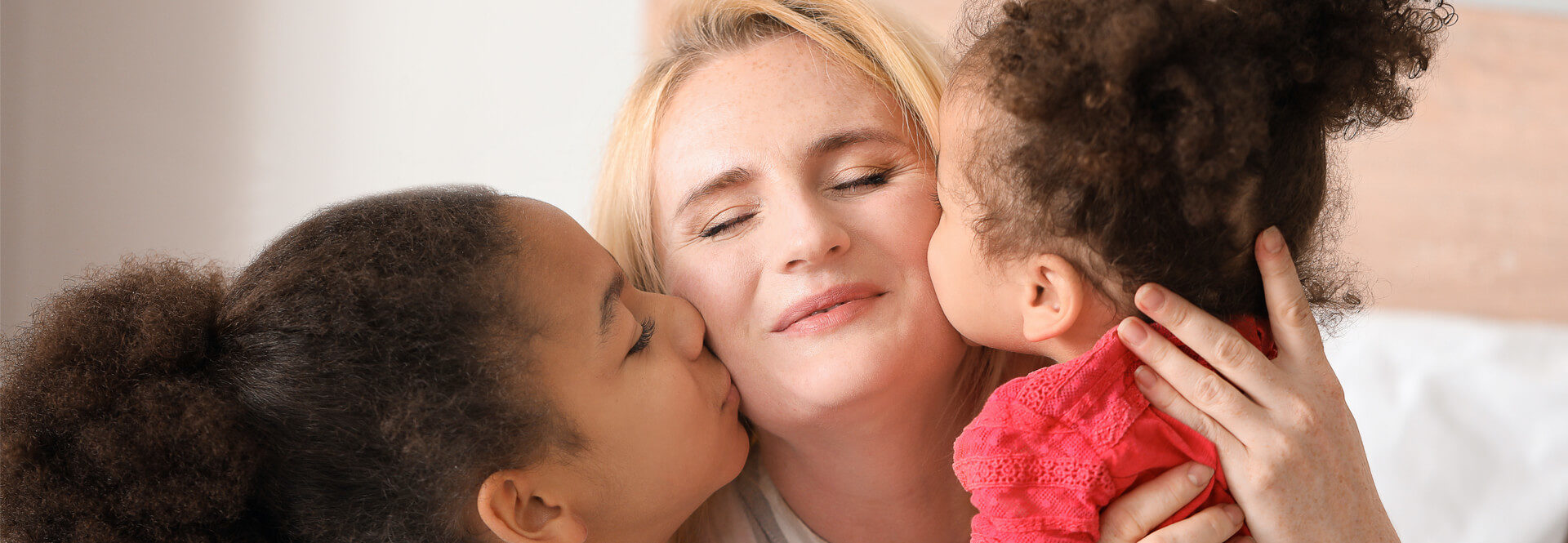
Ask the Adoption Coach: Bonding With Your Adopted Child
Reader: We have 3 biological children and adopted a girl from Ecuador a year ago. Bonding is going slowly. It’s going slower for me than I anticipated, but even worse for the kids. They argue a lot, keep track of others wrongs and annoying habits. They compare almost everything—who has more of this or that. Sometimes they are just plain mean. It goes in both directions, but mostly the bio kids to our new daughter. I have done a lot to make things as equal and “fair” as I can with all 4. I went easy on things in the beginning and didn’t try to force the kids on each other, but after a year nothing is better yet. All of the negativity can really bring the mood in the house down. Any advice?
Adoption Coach:
Dear Reader:
Dear Reader:
It seems as though your concern is two-fold. One, you are attempting to build a bond with your new daughter. Two, you are struggling to initiate and maintain a bond (and peace!) between your children.
First, if you haven’t already, find an experienced attachment therapist in your area to work both you and your daughter as well as with your family as a whole. The professional can come into your home and help you create a plan of action, as well as recommend resources, activities, and therapies that will promote healthy bonding. You might research and consider implementing attachment parenting practices such as co-sleeping, child-wearing, adoptive breastfeeding, and skin-to-skin contact. Attachment parenting practices can be tweaked to fit the needs and age of your child. The practice of hibernating, where you or your partner take an extended leave from work and focusing on family-bonding, might be an option worth considering, as well.
As a mother of three close-in-age children, I can certainly understand the struggles of “keeping the peace” in your home among siblings. Let’s look at your situation from your biological children’s point of view. Thomas C. Atwood and Jayne E. Schooler, authors of The Whole Life Adoption Book: Realistic Advice for Building a Healthy Adoptive Family, discuss your concerns in their book. The siblings’ struggles may include changes in birth order, witnessing the emotions of the parents, changes in discipline techniques and household rules, feeling less important, pigeon-holed into supporting their parents’ decision to adopt, explaining adoption to their peers, and particularly, children feel pushed aside and unimportant (98-110). Furthermore, a child who is adopted, and especially transracially adopted, tends to receive a lot of attention from not only friends and family members, but also strangers. An ordinary trip to the store to buy milk can quickly turn into an all-about-the-adopted-child extravaganza. Meanwhile, people coax your other three children to be excited about the new sibling, perhaps asking, “Don’t you just love being a big sister?” or, “Are you mom’s big helper?”
So what is a parent to do? Shirley Crenshaw, an attachment therapist with over thirty years of experience, allowed me to interview her when I was writing my book. She offered my readers the following suggestions:
- Be present. Take a leave-of-absence from work, if at all possible.
- Date. Carve out dates with individual children. Against what appears to be common sense, Crenshaw says that during the adjustment period after a new child comes home, children need less family time and more one-on-one attention from parents.
- Accept help. Well-intended relatives and friends can help in practical ways like fold laundry, prepare meals, mow the lawn. If possible, adoptive parents should hire professionals to clean their homes, maintain their lawns, etc. The one duty that shouldn’t be passed on to friends, relatives, or hired help is childcare. This job should become the parents’ primary focus. (Taking it back to being present.)
- Empathize. Parents should frequently check in with all their children, listening and encouraging their children to be honest about their feelings. Pep talks or, more likely, lectures about “being nice” to the new sibling don’t get to the core of the issue. Empathy is key!
- Be prepared for the next phase. As the honeymoon period (the initial time after your child arrives home) fades, harder times will surface. Work with an attachment therapist to transition your family.
You are clearly committed to your family’s well-being. With education, professional assistance, and a continual willingness to learn and grow, I’m certain you will experience happier days very soon.
- Attaching In Adoption: Practical Tools for Today’s Parents by Deborah D. Gray
- Welcoming a New Brother or Sister Through Adoption by Arleta James
- Shirley Crenshaw’s website.
- Resources (under chapter 10 heading) on sibling-hood for your children.
- On adoptive breastfeeding.
- On attachment parenting.


×
Search Adoption Network
Speak with a Specialist 1-800-367-2367